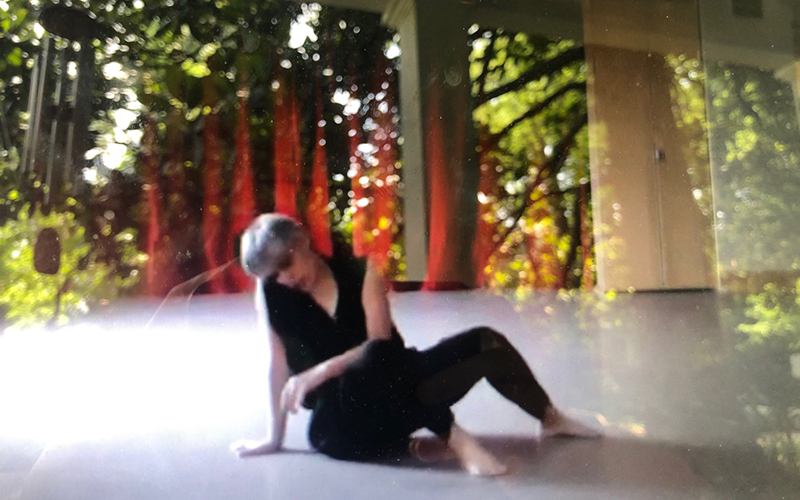Tell me about yourself and why you chose to pursue your MFA at UCLA.
What I love about WACD is its commitment to considering how dance as an act of cultural production participates in the world. It is a department that aims to rethink what choreography is, how choreography is defined, and what choreography can forge. I relish the fluidity between the MFA and PhD program. The exchange between both strands of inquiry are rich and complex. Together the MFA and PhD faculty are actively shifting the field in multiple arenas, including textual knowledge production and cultural production (live performance, film, new media, etc.). This is very inspiring.
My motivation for pursuing an MFA was to critically imagine what more dance can do. And question how it can do so.
You feel your connection and the connection of other MFA students to the PhD program bolsters your work and helps support your ideas and investigation into your work. Without that do you feel like you’d be in the same place with your choreography and research?
This department illustrates that things which might seem at odds with each other actually have the capacity to generate new possibilities. The interaction between the MFA and PhD programs has given me a space to critically examine the form I love so deeply; grapple with many of its difficult aspects; and envision what is possible. Part of that is considering my own role and what I can contribute. But a larger gift has been catching in progress glimpses of my colleagues’ performance and scholarship. There is an intellectual kinship that is not about agreement, but about pushing the field on multiple fronts.
You had a professional career in dance and other disciplines before you decided to attend graduate school. What did you envision your work to be when you came into this program versus the research that took you to the work you’re presenting at the end of your Master’s program next week?
There are so many ideas that I have the desire to actualize and there is only so much time. What idea takes priority and why does it take priority? Sometimes it takes priority because there is an urgency with what is happening politically in the world or something that is happening with my personal life.
When I came into graduate school I wanted to rigorously rethink my way of making. This new work is a long form piece (6-hour segments); new territory for me.
As I spent time researching dance value systems, my priority became finding a way to heighten acknowledgement of the value of each person that walks into the dance-theater. This long form is one inquiry into how I might be able to do this. By holding time; I hope to hold space for this to take place.
This work emerged through my discoveries here. I did not walk in with it in mind.
How important is it to you to have the audience? Do they become part of the piece and is it important to have them there?
I wanted to create a structure where individuals would have a chance to exert their agency by choosing how much time to spend with the work. Shared space with others is very important to me. But, I did not want to gauge that value on seeing the “entire work.” Presence, even brief presence, matters. Presence changes the work.
Do you see this work growing and evolving after you leave UCLA?
I see this work as a pilot or shortened version, and in the future lasting for a much longer period of time so it creates the occasion for the viewer to have a daily dance experience while still being theatrical.
How would you recommend that someone that doesn’t come from a dance studies background to approach your work for the first time?
It’s so cliché, but with an open heart; and heaps of curiosity. I will do the same.
Earlier on you spoke about rethinking what we know about dance, space and theater. Why did you choose to have your work in a traditional theater space?
Theater space exists. It’s a house and referred to as a house. There is something about the potential for a certain kind of intimacy, growth and safety that a theatrical space can provide. It allows you to move into another world. I’m interested in rethinking time in that space.
What’s next for you?
I think at the end of the day, what’s next is continuing to focus on how to do the work of employing dance/theater to affect changes in how we think. The circumstances around that work will change. Sometimes it is overwhelmingly difficult and sometimes it’s surprisingly easy. I want to find fruitful ways to share this effort with others. I also hope to offer my experiences to support others.
